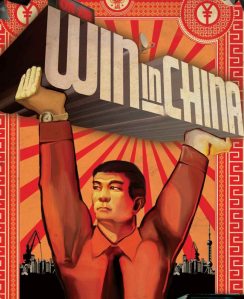 Bob Compton and I finally have something to agree about.
Bob Compton and I finally have something to agree about.
The Washington, D.C.–based venture capitalist produced a provocative documentary, 2 Million Minutes, which tracked six students—two each in the U.S., India, and China—during their senior year of high school. It showed the Indian and Chinese students slogging to learn mathematics and science, and the Americans partying and playing video games. Bob concluded that the Indians and Chinese will eat our children’s lunch since they are better educated. I was featured in the documentary and agreed that Indian and Chinese children do indeed work much harder than American children; that they are brought up to believe that education is everything and will make the difference between success and starvation; and that most of their childhood is spent memorizing books on advanced subjects. I argued, however, that things aren’t nearly as dire for U.S. competitiveness as they might appear to be in the documentary. My team’s research into global engineering education showed that more than 95% of Indians and Chinese do not receive a good education, and even those that do receive one take much longer to develop crucial real-world skills than do Americans. Yes, U.S. teens work part-time, socialize, and party. But the independence and social skills they develop give them a big advantage when they join the workforce. They learn to experiment, challenge norms, and take risks. They innovate from the get-go.
As I explained in this article, India has succeeded at building an innovation and R&D capability despite its weak education system: its private industry reeducates its engineering graduates. Chinese industry doesn’t have equivalent workforce-development practices, so the country lags in R&D outsourcing and innovation. China has achieved marvels by upgrading its infrastructure; uplifting hundreds of millions out of poverty; and building world-class universities and state-of-the-art research facilities. But its state enterprises—which dominate industry—are still bureaucratic, corrupt, and run autocratically by Communist Party members. Multinationals hype the R&D they are performing in China, but in reality, the majority of the work they do there is the localization of their technologies, not the design of innovative new products. And, despite the impressive numbers, the papers published by Chinese academics and the patents filed by its researchers are not worth the paper they are printed on—they are mostly plagiarized or irrelevant.
But things are rapidly changing in China. Its people are becoming highly entrepreneurial. And, as Sarah Lacy has written, some are beginning to go beyond copying western technologies; they are beginning to innovate. Compton documented the entrepreneurship trend accurately in a new film, titled Win In China: China’s Entrepreneurial Explosion. This shows China’s rapid transition to a capitalist economy—with its entrepreneurs leading the charge.
I witnessed the same trends during my trip to Beijing this week. I went there to teach a class hosted by UC-Berkeley’s Center for Entrepreneurship and Technology (at which I am a lecturer). I taught about 50 students and met dozens of local tech entrepreneurs. The students were no different from those I teach at UC-Berkeley and Duke: equally intelligent, open minded, innovative, and motivated to change the world. The entrepreneurs were also surprisingly like the entrepreneurs I meet in Silicon Valley—ambitious, fearless, and determined to build world-class companies. One big difference I noted from what I’ve witnessed during my previous trips to China, over the past 5 years, is that they are more accepting of failure and readily admit that they have been copying American technologies: anything they read about on TechCrunch. But most of them talked about using their experience to build new generations of products directed at the Chinese market. They had no interest in building products for the West. They were also a lot more confident and mature than earlier generations.
So Bob and I completely agree on the significance of the Chinese entrepreneurial revolution. And we don’t disagree any more about what our children have to worry about: when it comes to global competitiveness, the Chinese (and the Indians) will eat our children’s lunch. More innovation is good, no matter where it happens, but America is going to face tough competition from the rising powers in the East. We had better encourage our kids to improve their skills, learn about global markets, and prepare for a time when they will be copying Chinese and Indian technologies.
P.S. The week of November 15 is Global Entrepreneurship Week. Started by Kauffman Foundation to encourage the type of game-changing entrepreneurship that China has witnessed, this has grown into a global movement which involves 10 million people in 100 countries with 40,000 events. I encourage you to get involved.
Editor’s note: Guest writer Vivek Wadhwa is an entrepreneur turned academic. He is a Visiting Scholar at UC-Berkeley, Senior Research Associate at Harvard Law School and Director of Research at the Center for Entrepreneurship and Research Commercialization at Duke University. You can follow him on Twitter at @vwadhwa and find his research at www.wadhwa.com.






























Comment